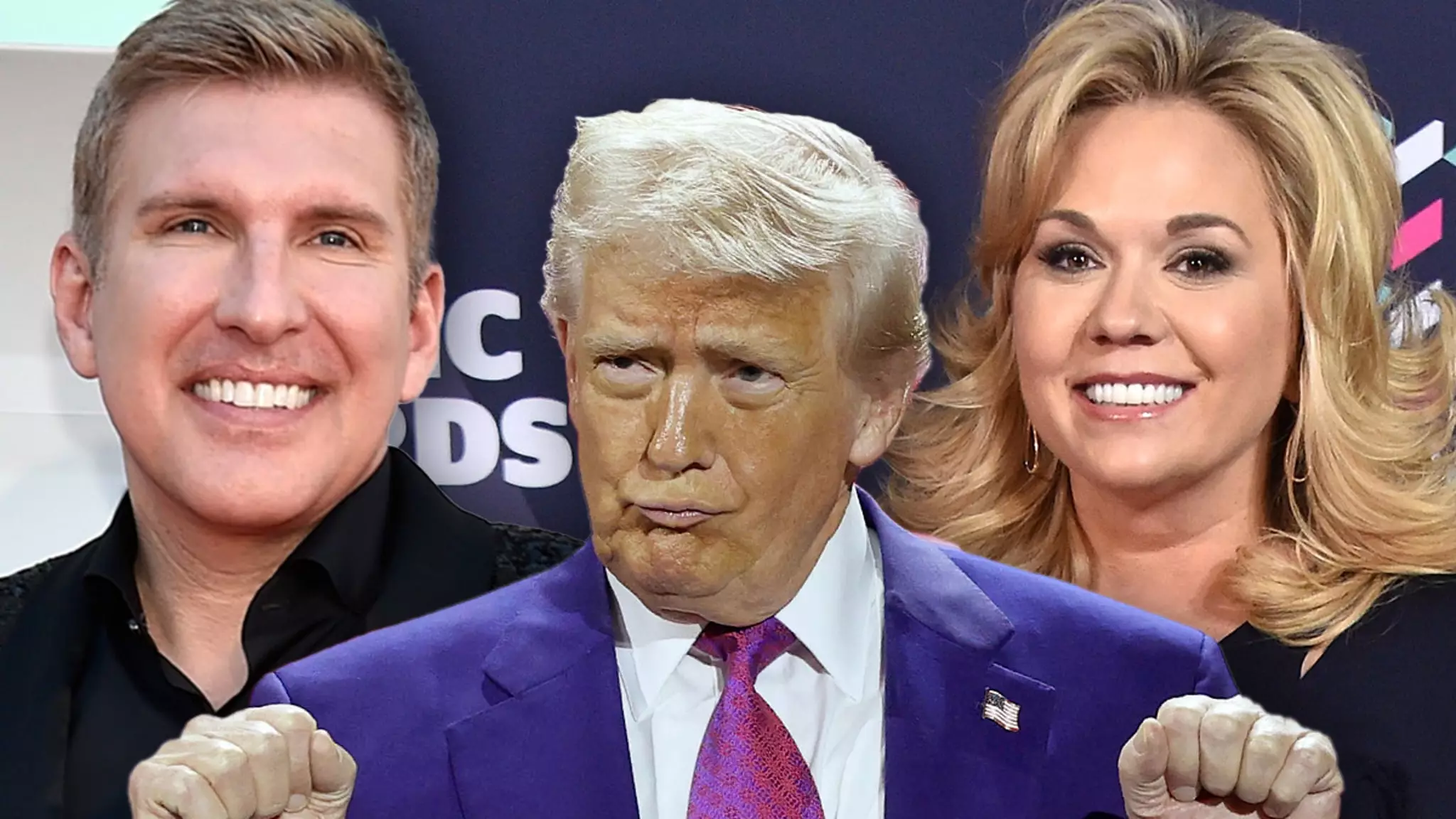In an unexpected turn of events, reality TV stars Todd and Julie Chrisley have been granted full pardons by former President Donald Trump. The pardon process, as confirmed by a spokesperson for the Federal Bureau of Prisons, is not instant; it may take several days before the Chrisleys are fully released, possibly passing through a halfway house en route to their newfound freedom. This situation lays bare the complexities involved in the judicial system, particularly regarding the protocol surrounding pardons, which can often blend justice with political drama.
The Impact of High-Profile Cases
The Chrisleys, who gained fame through their reality show “Chrisley Knows Best,” have become emblematic of how celebrity status can intertwine with legal issues. Their conviction in 2022 for serious financial crimes—including bank fraud and tax evasion—resulted in sentences of 12 years for Todd and seven years for Julie. The Chrisleys’ story is not merely about their legal troubles; it reflects the broader societal tensions regarding accountability, privilege, and the intersection of fame and justice. The attraction of their case lies in its duality—while they were convicted of crimes that typically carry serious consequences, their celebrity status seems to have shifted public attention from their actions to discussions about constitutional rights and alleged political bias.
Claims of Targeted Prosecution
Alex Little, the Chrisleys’ attorney, has fervently argued that the couple was targeted due to their conservative beliefs and media presence. This assertion resonates widely, particularly among supporters who believe that certain minority groups face systemic issues within the judicial framework. Todd and Julie’s daughter, Savannah, echoed these sentiments during her appearance at the Republican National Convention, asserting that their family’s convictions were motivated by political factors and not purely factual ones. The claims that an Obama-appointed judge referred to them as “the Trumps of the South” add another layer to the narrative of political victimization and suspicions around the motives of legal authorities.
Public Sentiment and Familial Unity
Savannah has taken to social media to express her gratitude toward Trump for his role in securing her parents’ pardons. Her emotional reaction underscores the complexities of family loyalty in the public eye and how personal struggles can fuse with larger political narratives. The sentiments she conveyed were not only of relief but also of empowerment, as she asserted that their fight for freedom was the result of countless prayers and unwavering dedication. Such a narrative is powerful, reflecting the immediate emotional stakes involved when family members are entangled in serious legal battles, particularly under public scrutiny.
The Broader Implications
The immediate release of the Chrisleys raises significant questions about the efficacy of the judicial system and the unequal application of justice in high-profile cases. While the Chrisleys may be celebrating their premature release due to political backing, the case serves as a somber reminder of how fame, ideology, and privilege can obscure instances of accountability. This dynamic exemplifies the intricate relationship between entertainment and governance, which inevitably shapes public discourse around justice and law. In truth, the saga of Todd and Julie Chrisley will likely continue to unfold as the implications of their pardon ripple through both media and political domains.

Leave a Reply